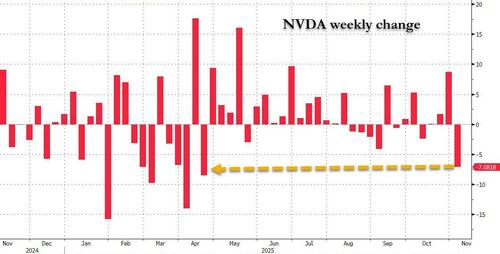Climate justice appeared in the preamble of the 2015 Paris Agreement. Its conceptual underpinnings go back several decades. Concerns about environmental justice and intergenerational justice got intertwined. The climate crisis was not just a technical problem of abating greenhouse gases. Within the climate crisis were embedded issues of distributional equity (who bore the burden?), procedural justice (who framed the agenda?), diversity of living conditions (how were differences acknowledged?), sustainable development (whose rights were protected?), and accountability (how to make polluters pay?). Yet, climate justice remains elusive. Tensions have not been resolved. There are five games at play and their rules are crafty.
First, doubt versus certainty. Climate action remained hostage to tactics that kept doubting growing evidence of a warming planet. But the degree of certainty that humans were contributing to climate change kept rising. The world is on track for ~2.5 degree C of warming by 2100.
As doubt gave way to certainty, certainty became the tool to erase differentiation, with the demand that all countries reach net-zero emissions by 2050. Suddenly, countries whose citizens consumed energy in excess were at par with those home to 700 million-plus people with no electricity connection.
While some (including India) have pushed back with a later net-zero year, the burden of diminishing carbon space continues to fall disproportionately on poor countries. This must be resisted. Under the mitigation work programme, developed countries must be pressured to raise ambition (net-zero well before 2050), so that the poor get more carbon space within which to develop. Moreover, the compliance committee under Article 15 of the Paris Agreement must be expanded to impose punitive measures on countries threatening to exit from the agreement. Certainty of a planetary crisis must not be used to distract attention from low ambition and even weaker action by the original doubters.
The second game is finance versus investment. Since 2009, the promise of $100 billion in climate finance has evaded capture, either in vocabulary (no one agrees how to define it) or in monetary terms (no one has seen it). Everyone knows a lot more is needed. By 2030, $1 trillion in hard investment will be needed in sustainable infrastructure in developing economies for their net-zero energy transition.
But the debate on climate finance is trapped between a negotiated maximum and delivered minimum, instead of shifting to a deeper conversation about trillions of dollars in investment. When the issue of investment is raised, the spectre of emerging market risks emerges. But concessional finance to de-risk investment is missing. Even the Organisation for Economic Cooperation and Development (OECD)’s (contested) climate finance estimates show that private investment is only 19% of public capital flows. This ratio must be inverted. COP27 must make progress on how concessional public capital (currently, grants are only 26%) is used to de-risk and crowd in many multiples in terms of private investment.
Then comes adaptation versus loss and damage (L&D). These are not the same. If someone burns my house down, they are liable to pay for the damage caused. The response cannot be that I should “adapt” to my new circumstances. But demands for a L&D financing facility are stonewalled. No developed country has included L&D in their nationally determined contribution. The Egyptian hosts of COP27 are giving this priority, so we must monitor whether L&D financing via the Santiago Network makes progress.
Equally, while the share of adaptation financing has risen to 34%, in absolute terms, the promise of $40 billion annually is pittance: $340 billion will be needed annually by 2030. India should insist that reporting on adaptation finance delivered be mandatory to measure progress on a global goal for adaptation.
The next game is technology versus mercantilism. Technology transfer has been a pillar of the United Nations Framework Convention on Climate Change (UNFCCC) — with shaky foundations. Clean tech doesn’t get transferred for free. When it comes to breakthrough technologies, developed economies are turning mercantilist and protectionist. Standards (for green hydrogen, for instance) are being set unilaterally; trade rules are being designed unilaterally to keep imports out; there is a race to acquire critical minerals. There is no energy security to handle the energy fuels of the future or address concerns of the energy demanders of the future (emerging economies). A new paradigm of technology co-development is needed: Pool technical, human and financial resources, jointly develop technologies, co-own intellectual property, and coordinate on green public procurement to create demand at scale (say, for green steel) while lowering trade barriers.
Finally, production versus consumption. Climate negotiations have been structured around territorial emissions rather than based on how much individuals emit to maintain their standard of living. Accounting ploys, such as inflated base years and counting emissions from sources (developing countries) rather than consumption, have been used to mask non-performance. Consequently, developed countries have emitted 25 giga tonnes of carbon dioxide equivalent (CO2e) more than they were permitted under the Kyoto Protocol. The high per capita emissions of developing countries compare poorly against 0.9 tonnes of CO2e by 2050 to be consistent with 1.5 degree C warming. While production emissions everywhere must reduce, the real change must be in reducing lifestyle-based consumption footprints.
Climate negotiations are far from panaceas. Much climate action can happen by creating finance and tech partnerships sector by sector. But the larger principle of climate justice matters. Whoever games the rules, wins the game. At COP27, the rules of engagement must change. After all, justice delayed is justice denied.
Arunabha Ghosh is CEO, Council on Energy, Environment and Water, and a member of the UN Secretary- General’s High-Level Expert Group on Net-Zero Emissions Commitments of Non-State Entities
The views expressed are personal















